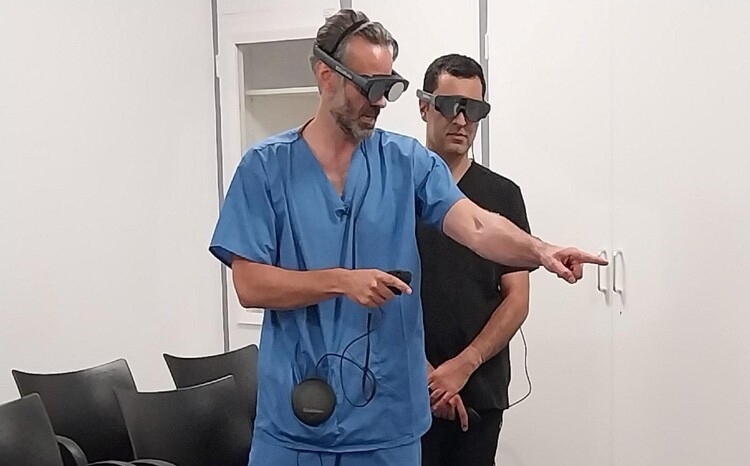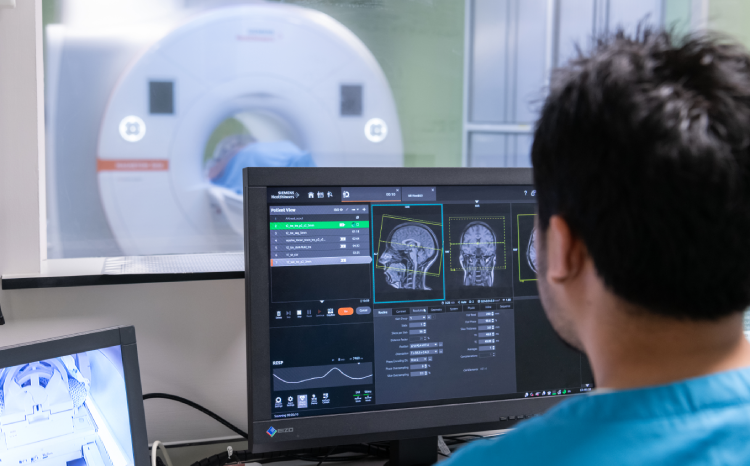Neurosurgeons at Imperial introduce mixed reality technology
- 13 September 2024

- Neurosurgeons at Imperial College Healthcare NHS Trust’s neurosurgery team are using mixed reality technology
- The simXAR mixed reality tool, from XARlabs, is used for training and to better explain proposed treatments to patients
- It allows clinicians and patients to view and interact with high-resolution 3D hologram-like images of patient scans
Imperial College Healthcare NHS Trust’s neurosurgery team has introduced mixed reality technology with the aim of improving training and patient care.
The team is using the simXAR mixed reality tool, from XARlabs , which was developed independently by Mr Ali Haddad senior neurosurgery registrar at the trust when he was part of the NHS clinical entrepreneur programme.
Xarlab’s technology allows clinicians and patients to view and interact with high-resolution 3D hologram-like images of patient scans, alongside traditional imaging techniques.
It is being used to support some patient consultations, assist preparations for certain operations and provide immersive clinical training.
Mr Haddad, chief executive of Xarlab, said: “The technology allows us to visualise and rehearse surgical procedures with great detail and accuracy, which we believe brings quantifiable benefits to both patients and clinicians.
“We are also looking to explore how the technology could benefit surgeries in real-time in the future, hopefully undertaking clinical trials within the next couple of years.”
Mixed reality, which blends 3D digital content with the real world, enables users to interact with digital content – such as 3D renderings of patient scans – while remaining fully aware of their real-world surroundings.
Unlike virtual reality, which immerses users in a separate 3D environment and blocks out the real world, mixed reality enhances the user’s perception by integrating digital and physical elements.
The simXAR technology was initially planned to support training within the neurosurgery department with funding from NHS England.
However, the trust’s neurosurgery team recognised the broader benefits the technology could offer patient care and introduced it in some consultations to better explain proposed treatments to patients as part of the consent process and also used it more widely to enhance team preparedness.
CT and MRI patient scans are converted into 3D augmented reality models using the technology.
During training sessions and certain patient consultations, both the surgeon and the trainee – or the surgeon and the patient – wear trust-owned Magic Leap 2 headsets.
The surgeon can interact with the 3D model by zooming in, rotating it, or ‘walking’ inside to visualise the patient’s anatomy in an immersive and easily understandable way.
Mr Arthur Dalton, consultant skull base and vascular neurosurgeon at Imperial College Healthcare NHS Trust, said: “We immediately saw the potential of this technology and set out to develop a world-class mixed reality suite, drawing on the expertise and innovation within our own surgical team.
“The level of detail and interactivity it offers far surpasses traditional methods, facilitating better preparation and understanding for surgeons, trainees and patients.”
The team is now looking to assess the technology’s potential broader benefits in medical training, patient experience, and surgical guidance, subject to ethical and regulatory approvals.





